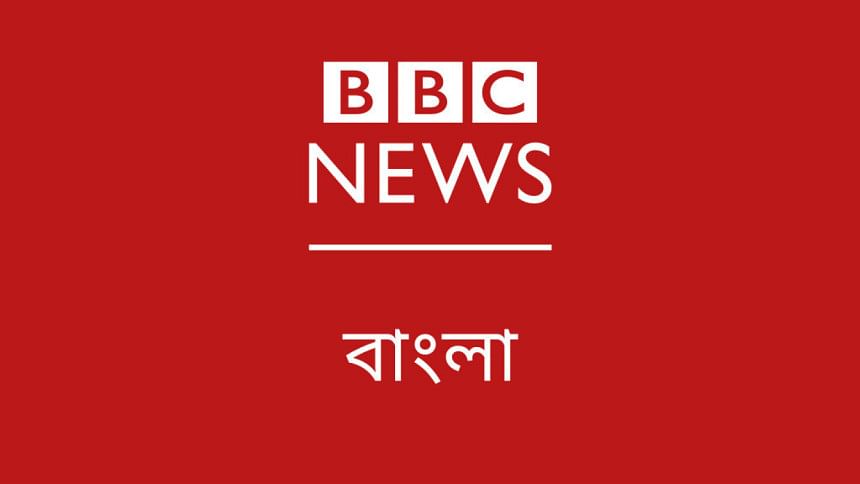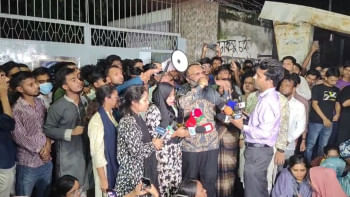AL discreetly sets up ‘party office’ in Kolkata

In the bustling outskirts of Kolkata, a commercial complex has begun drawing unfamiliar visitors for the last few months.
Many of these individuals, just a year ago, were among the most powerful figures in Bangladeshi politics -- the senior and mid-level leaders of the Awami League and its affiliated organisations.
According to a BBC Bangla report, the Awami League has set up a "party office" on the 8th floor of this complex.
The report said AL leaders began to come to India after former prime minister Sheikh Hasina fled to India on August 5, 2024, in the face of a mass uprising.
Hasina is believed to be somewhere near Delhi, and many senior AL and its affiliated bodies' leaders, including former ministers, have rented homes in and around Kolkata.
Initially, they used their homes for informal meetings and organisational tasks, while larger meetings were held in restaurants or rented banquet halls.
The 500–600 sq ft office now serves as a regular venue for party meetings.
According to the report, the office has no signboards or portraits of Sheikh Hasina or Bangladesh's founding president Sheikh Mujibur Rahman, either inside or outside.
"There are no typical party office files here. We needed a discreet space for regular meetings, and this commercial office fit the bill. The furniture was left behind by the previous tenants," one AL leader told BBC Bangla.
He added that 30–35 people can hold meetings there.
Apart from AL leaders and activists, various professionals, civil servants, police officers, and retired military officials have also fled to India.
About six months ago, party sources estimated that around 200 people, including at least 70 MPs, district-level party leaders, upazila chairmen, and mayors, had fled to greater Kolkata.
Some live with families; others share flats with colleagues. Families occasionally travel from Bangladesh for visits.
"Some who arrived have since moved on to the US, Canada, or Australia," another leader told BBC Bangla.
The party office has no fixed hours, with senior leaders dropping in as needed.
According to the report, Indian intelligence agencies are aware of it, as operations here could not proceed without the approval from India's Ministry of Home Affairs.
"It's not true that the party is being run from India," Saddam Hossain, the president of the now-banned Bangladesh Chhatra League, told BBC Bangla.
"How many leaders of the main party and its affiliates are even abroad? Most remain in Bangladesh," he added.
Until recently, top leaders hadn't met Hasina in person. She reportedly held a meeting with them in Delhi on July 31.
Multiple leaders confirmed this to BBC Bangla but declined to reveal the agenda or location.
Separate WhatsApp and Telegram groups have been created, and live online programmes are regularly held, with Hasina occasionally joining.
Former lawmaker Pankaj Debnath told BBC Bangla that they are in regular contact with grassroots workers through digital platforms.
On social media, questions frequently arise about why grassroots activists are being assaulted, arrested or harassed in Bangladesh, while senior leaders remain in India.
"This is a valid question," said Pankaj Debnath. "But look at 1971; if the then-leadership hadn't fled to India and formed a government-in-exile, could the Liberation War have been coordinated? I'm not equating 1971 to now, but history offers such examples, even globally. Leaders who built strength from abroad have returned to power. Think of Nawaz Sharif, Benazir Bhutto, or Tarique Rahman."
As Bangladesh's interim government marks its first year, the AL has stepped up criticism, accusing it of multiple failures.
AL General Secretary Obaidul Quader told BBC Bangla: "This government failed on every front. Their vision for a new Bangladesh is crumbling. The economy is failing, the judiciary is a joke. They blame Hasina and India for everything."
Multiple AL leaders told the BBC that well-wishers at home and abroad are supporting them financially.
"We've had to drastically change our lifestyles." Pankaj Debnath said.
In Dhaka, some never travelled without a car or shared accommodation, but in India, they use public transport and share a flat with others, he said.
"If we go somewhere together, we share the taxi fare. The idea is to live as frugally as possible."
In May, the government banned all activities of the AL and its associated and affiliated organisations, on allegations of killings, genocide, crimes against humanity, and other grave offences during the July uprising.

 For all latest news, follow The Daily Star's Google News channel.
For all latest news, follow The Daily Star's Google News channel. 



Comments